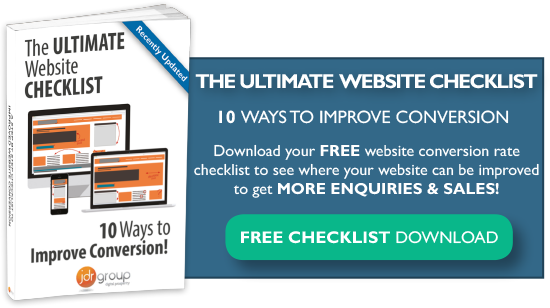Do I Need A Website For My Start-up Business?

It may be a cliché to say this in 2019, but yes, it is essential for all businesses to create a website as soon as possible – even start-ups and local businesses. Many small start-ups used to depend on local advertising, referrals and word-of-mouth to get their first few clients, and only then invest in a website, but this is a risky strategy these days because of the way people research information.

The first thing you do when you hear about a company, whether through social media, a TV advert or printed magazine, is seek out their website – either directly or via a Google search. You might look them up on Facebook if you happen to be there as well, but the first port of call is the company website.
This applies to all products and services, including strictly local suppliers such as independent plumbers and electricians. Some tradespeople still try to make do without a website, focusing instead on building a local Facebook presence. Social media activity of this kind is a great way of generating leads, but our prediction is these businesses are still losing out to local competitors with websites AND Facebook pages.
Here are the main reasons why:
1) Information & Accessibility
Websites provide a safe and convenient place for prospects to research your company, products and services from the comfort of their home or mobile device. People aren’t normally ready to jump straight into a conversation with a salesperson and commit to a purchase, so online information allows people to take the buyer journey at their own pace. Far from reducing the number of closed sales, this increases the likelihood of conversions because the people who make contact through your website are prequalified leads – meaning they already know something about your offering through online research.
People aren’t as keen to call a business these days if they have a question, with many people preferring email contact. A website gives prospects this flexibility while putting them in control of the sales process.
2) Professionalism & Credibility
Businesses with a professional, functional and user-friendly website have an innate credibility which helps build trust with potential customers.
3) Online Reach
The first question a prospect often asks in a face-to-face conversation is “what’s your website address?” Being armed with an online presence allows staff and customers to share your website with interested persons without having to engage in a lengthy pitch. Website addresses can also easily be shared through email and social media, increasing the shareability of your content and opening you up to a larger market.
4) Branding
Having a website gives you greater control over your branding and company image, establishing a recognisable online shopfront or profile for your business.
5) Marketing Analysis
Having a website is essential for conducting a modern, digital marketing campaign. Not only is a website the online hub and central focus of your marketing content but is also the basis for marketing analytics. By adding tracking codes to different web pages, you can evaluate where leads are coming from and through which channels – e.g. blog, social media, PPC advertising, direct visits, Google search results etc. Your marketing team – or a marketing agency working on your behalf – can use this information to help pinpoint areas for improvement and maximise your return on investment.
The Bottom Line…
The bottom line is you will struggle to generate many leads or convert new customers without a company website. You need an online presence to increase visibility and attract and educate prospects.
This doesn’t mean a start-up needs to spend tens of thousands of pounds on a website. A website simply needs to be informative about what you do, how this solves your customer’s problems, and how to get involved. Above all the content should be targeted at the type of buyer you need to attract – called a buyer persona in marketing.
When writing the content for your first website, think about the issues these ideal customers face in their work, their motivations and reservations when investing money, their potential job title and career path, and the conversation you’d like to have with them about how your products/services can help! This is the value proposition you should be putting across in your start-up website.
A simple, brochure-style website of 4 to 10 pages will suffice to get you started online. Using a pre-built theme or an online template means an initial website won’t cost the earth and won’t take long to create. You can add extra service pages, landing pages, a blog and downloadable content at a later date.
Speak To Us!
If you already have a website you’d like to refresh, or if would like to discuss an entirely new design, please get in touch. We have experienced web designers and developers on our team who can help set up an effective business website focused on lead generation and customer conversion. Call 01332 343281 to find out more.
Image source: Pixabay


